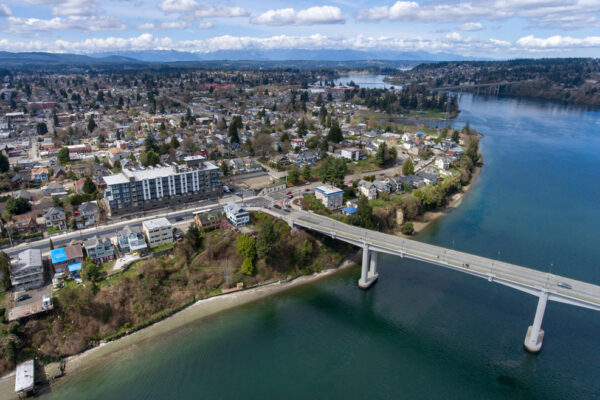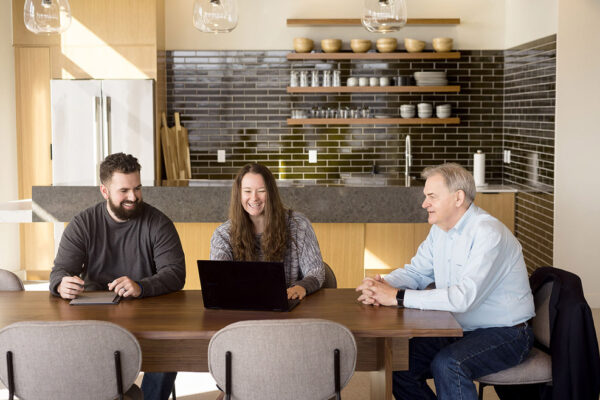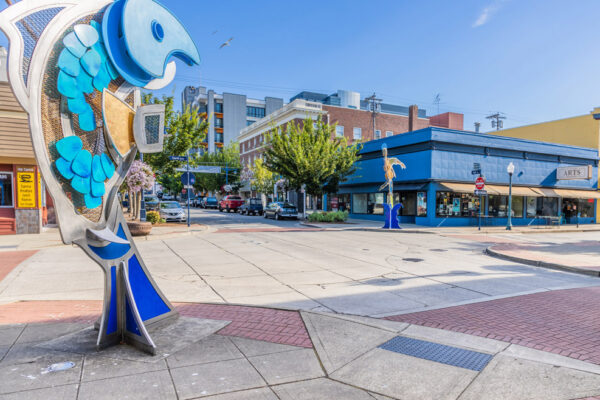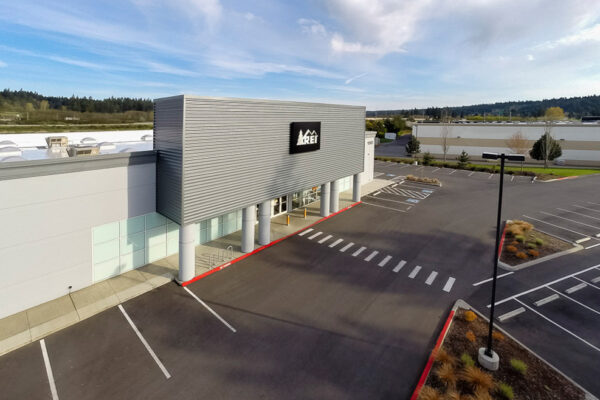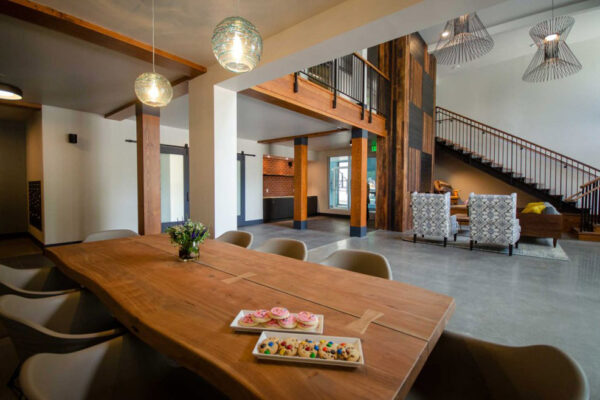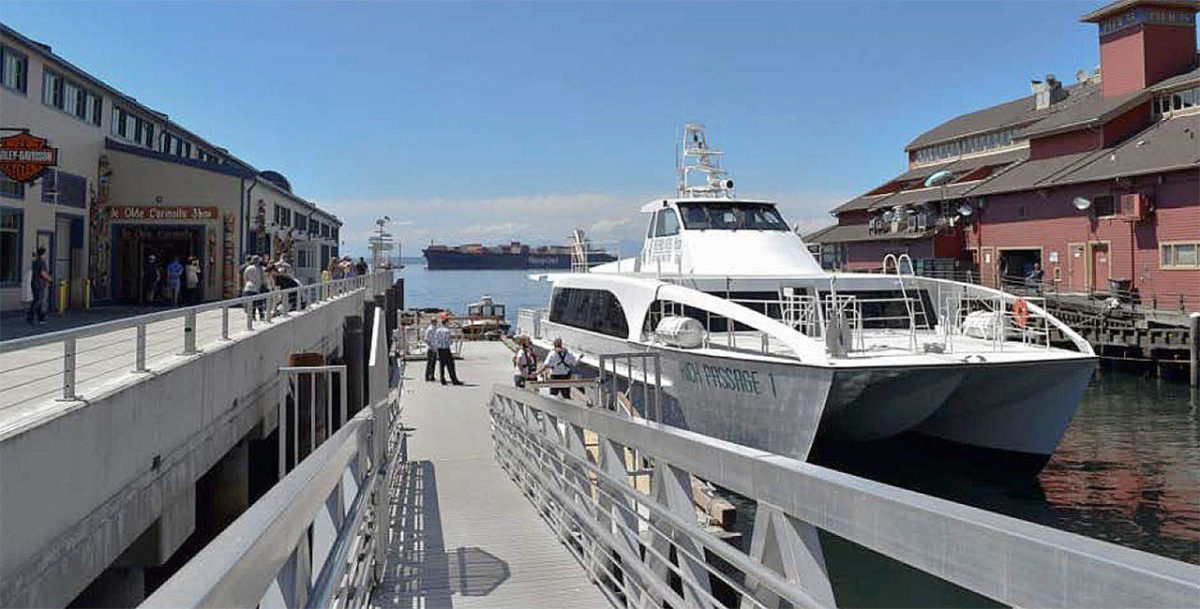
Much has been made about mechanical and service issues with the fast ferry in its initial six months of operation. It is fair to say that the Rich Passage 1 has perhaps had more than its “fair share” of breakdowns and delays.
We all knew when the fast ferry initiative was passed, it would take another year before a second boat would be in place for the Bremerton run, with boats becoming available for the Kingston and Southworth runs in 2018 and 2019. We all knew going in that in the event the boat was temporarily out of service, the back up would be the auto ferry.
On the other hand, mechanical and service issues are not unique to the fast ferry system. If there were no backup boats for the auto ferry routes, wouldn’t the results be just the same — if not worse — because mechanical and service issues are just as much a fact of life with Washington state ferries, if not more so?
A letter on Sept. 5, 2017, from Washington State Ferries, stated: “Since Memorial Day, five of our 22 vessels have undergone extended, unplanned repairs. Currently, four of those 22 vessels are out of commission, leaving only 18 boats to operate a (summer) schedule requiring 19 boats to run at full capacity. One of those boats (the 50-year-old Kaleetan on the Seattle-Bremerton route) is running at half-power because of a problem with one of its propulsion generators.”
The fast ferry has also faced the unique challenge of taking on a full schedule of runs despite having essentially been “dry docked” for five years prior to being placed in service. That is no different from keeping a car parked in a garage for five years and expecting it to run flawlessly. But when the fast ferry works on schedule, it is everything we could have imagined, and more. To wit, on Oct. 13, I was scheduled to fly out of Sea-Tac at 7:30 a.m. to Phoenix to attend the UW-ASU game.
The plan was to rise at 4 a.m. and be out of the house in time to catch the 4:50 a.m. auto ferry to Seattle so I could be at Sea-Tac at least an hour early for a 7:30 p.m. flight. (Three hours in my life experience in Kitsap is the minimum mandatory lead time to get to the airport from Seabeck).
I overslept and awoke in a panic at 4:45. Getting to Seattle would now mean driving around, and I knew that would be a little tight, depending on traffic (which I expected would still be light at that hour, but you never know … If I was able to leave by 5 or 5:15, I might make it by 6:30.
But wait — there is a 5:40 a.m. fast ferry.
I checked my email to see if there were any rider alerts from Kitsap Transit, a service KT provides on request. (In fact, one does not have to wait to get to the dock to find out whether changes have been made to the fast ferry schedule. There were no alerts, so I was on my way.
I looked at my Blackberry (yes, I still have one of those) to check the time. It was 5 a.m. and I was still standing in my kitchen with a cup of coffee. I left my house off Seabeck Highway and Newberry Hill Road at 5:05 a.m., with my wife driving me to the ferry terminal.
The ride from my home in the wilds of Seabeck took 25 minutes. I made the 5:40 ferry without a reservation, with a wait time to board of about 10 minutes.
The ferry glided through its run in 28 minutes. The boat was about 90-percent full. Riding next to me was a student attending Holy Names Academy, UW students and lots of young hipsters who could have been Amazon employees, hospital workers, and men and women in business suits who I imagined to be bankers and lawyers.
Just before docking, I called for Uber (no time to walk to Sound Transit this morning). Uber was just two minutes away, and within five minutes we were heading south on I-5 (so it’s now 6:12).
Uber got me to the airport by 6:30. It then took me a half hour (ironically, this was the longest segment of my trip) to clear security and get to my gate.
I went straight on board, and there I was, at 7:05 a.m., in my seat on Alaska Airlines, with the airline crew running through its safety check, receiving the presentation on seat belts and life jackets.
Precisely two hours from the time I was sipping coffee in my home in Seabeck to sitting on a plane in Sea-Tac, ready to order my second cup for the morning.
I paused to reflect — incredulous at how smooth and efficient the trip was. From Seabeck to Sea-Tac — and in a plane on the tarmac — in a measly two hours. With options like Sound Transit, Uber, Car 2 Go and “Lime Bike” to connect on the Seattle side from the fast ferry, one no longer needs a car, period. We can get to anywhere in the greater Seattle area, our nation’s boomtown, within two hours.
Two of my employees at SWG now use the fast ferry daily. One commutes from Mercer Island, and the other catches the water taxi from West Seattle, then hops on the fast ferry to Bremerton. My Mercer Island commuter guesses he has been at “about 92 percent” on schedule with the fast ferry. He has had a few inconveniences but largely has been able to rely on the rider alerts and switches to the auto ferry on those occasions.
Fast ferry service is still in its start-up phase, but it is working. At a recent regional conference for ferries, the Kitsap Transit fast ferry was presented as an example for other communities in the Puget Sound region looking to start passenger-only service from Point Defiance/Tacoma to Everett, and points in between.
Fast ferry is also already serving its purpose to attract investment and jobs to Kitsap. The fast ferry was a factor supporting the decision of a national hotel group recently to commit millions in investing together with our company in developing a much-needed new hotel on the Bremerton waterfront, now in the works.
With a second boat on the run, service levels should meet our expectations and then some. We have heard all the frustration and upset with service breakdowns. But, given time, those will be managed.
My two-hour commute from Seabeck to Sea-Tac is how we thought it should and could be.
And that is a real game-changer for Bremerton as it will be for Kitsap County. Now is the time to double down and continue to commit to increasing fast ferry service, not shy away from the challenge.
If only the Huskies had beaten ASU, it would have been a perfect weekend.
Wes Larson is principal/CEO of Sound West Group, a real estate development, property management and brokerage company in Bremerton. Larson also serves on the board for Great Peninsula Conservancy.
